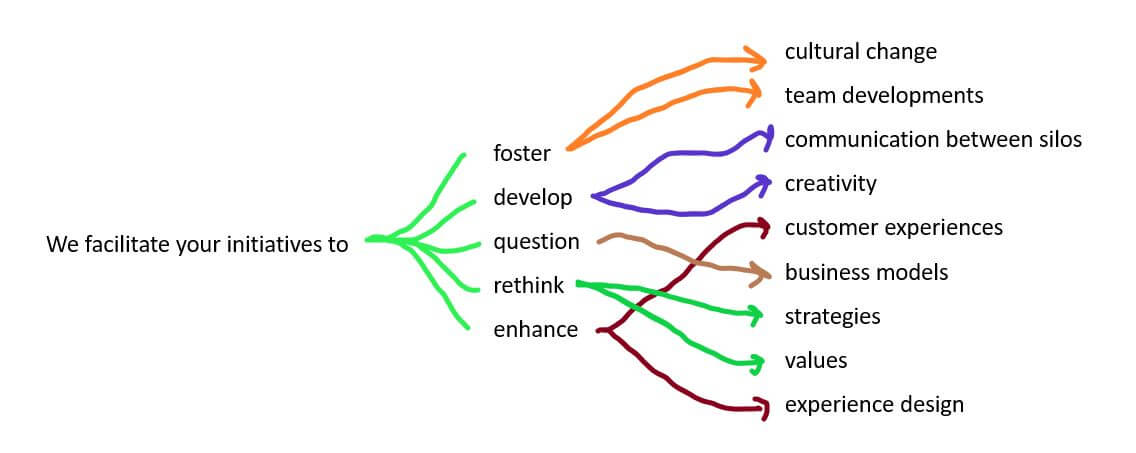A facilitator helps with the concept, design and monitoring of processes.
If a customer comes with a request, the facilitator is required to create a concept that reflects the request. It is good if the concept is broadly based and includes flanking measures in addition to the core tasks. The next challenge is the design. How do I design the process so that all parties involved are exposed to worthwhile experiences with and in the change? The better the experience, the easier the process will unfold. This is where it becomes apparent whether concept and design have been well thought through and are sufficiently broad-based. During implementation, the facilitator is busy keeping the process going, checking and adapting it - if necessary. His two goals are: to be there for the people and to achieve the intended goal in the best possible way.

A Facilitator's operational areas
Companies are constantly changing. They develop new methods or products, they rethink the way they work together, they reorganize how their workforce should work together, they restructure, they improve communication and international collaboration, they question themselves and give themselves new values and visions. Some want to provide their customers with a better customer experience, others want to increase their agility. Creativity should become part of the corporate culture so that the business model becomes more sustainable.
The challenges and daily activities are as diverse as you can imagine. All these processes can and should be accompanied by a professional facilitator.
